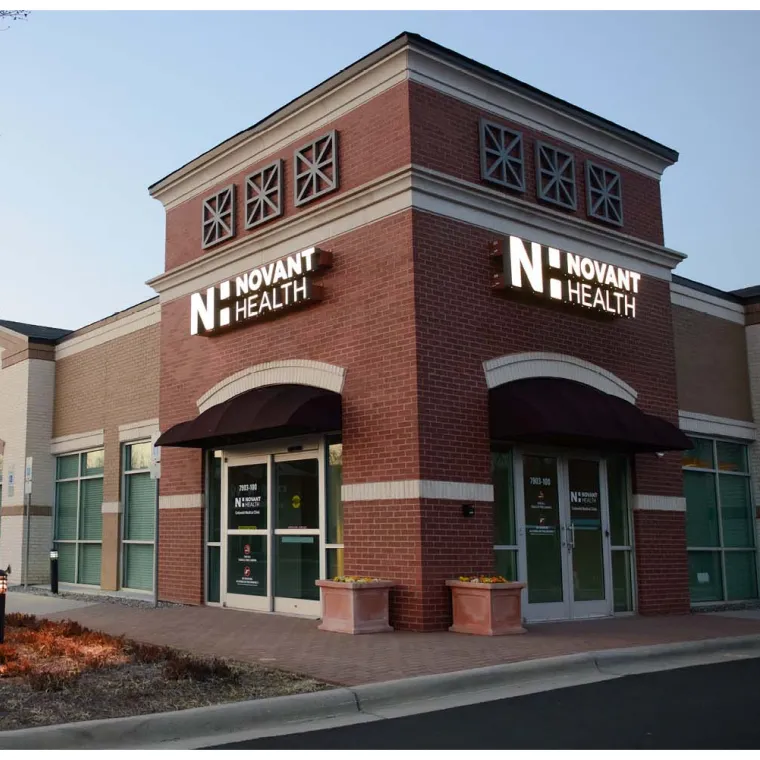Heart Valve Repair
Surgical and nonsurgical care
Heart valves that leak or function abnormally can cause chest pain, fatigue and other symptoms. Heart valve medications, vascular treatments and valve replacement surgery can help restore your heart's normal function.
Take the First Step
If you believe you are at risk for heart disease, it’s time to take the first step in improving your cardiac health. Visit your primary care provider to discuss your heart health to see if you need a referral to one of our heart specialists. If you do not have a primary care provider, follow the steps below to get started:
Step 1:
Visit your Primary
Care Provider
Step 2:
Discuss your
concerns
Step 3:
Your provider gives
a referral
Step 4:
Choose the right
specialist for you

How a heart valve works
Your heart has four valves that regulate blood flow. The tricuspid valve allows blood in need of oxygen to flow from the right atrium into the right ventricle, which then pumps blood through the pulmonary valve into the lungs. Oxygenated blood returns to the left atrium, then travels through the mitral valve to the left ventricle before exiting the heart through the aortic valve.
The mitral valve has two flaps, called cusps or leaflets. Each of the other valves has three cusps. When valves fail to close normally or become thickened or inelastic, disruption of blood flow through your heart can occur. That can cause symptoms like chest pain, dizziness, fatigue, shortness of breath and a racing heartbeat.
Common heart valve conditions
Three primary conditions require heart valve treatment: valvular stenosis, valvular regurgitation and valvular atresia. These conditions can affect one or more of the heart's four valves.
- Valvular Stenosis — Heart valves that have thickened or stiffened fail to open properly. Stenosis forces the heart to work harder, which still may not be sufficient to supply oxygenated blood to the body.
- Valvular Regurgitation — Occurs when valves don't close properly. That allows blood to leak in either direction between chambers.
- Valvular Atresia — A congenital heart defect where one or more heart valves don't form.
Medications
Your cardiologist may be able to manage your conditions with medications. Beta-blockers, calcium channel blockers and digoxin, for instance, can be used to help control the heart rate and reduce its workload. Blood pressure medications, meanwhile, can help relax blood vessels so your heart can pump more efficiently.
Surgical treatments
When medication is not enough, your care team may refer you to a heart surgeon to determine whether you would benefit from valve repair or replacement surgery. At Novant Health we offer surgical solutions for problems related to your aortic, mitral and tricuspid valves. These include standard open-heart surgeries and less invasive procedures.
In less invasive procedures, a surgeon uses special imaging equipment to guide a thin wire or tube called a “catheter” through an artery via incisions in your groin or chest until it reaches the damaged valve. Artificial valves, balloons and other items needed to repair or replace the valve are then inserted and manipulated through the catheter.
Because they use small incisions and cause less blood loss, transcatheter valve surgeries were first approved for patients for whom standard open-heart surgery was considered too risky. Today, they are increasingly used on low-risk patients as well, because they result in shorter hospital stays and quicker recoveries with less pain and scarring.
To provide more capacity and scheduling flexibility, Novant Health has equipped many of its cardiac operating rooms for both open and catheter-based heart surgery.
Valve Repairs & Replacements

Convenient Heart & Vascular Care
The Novant Health Heart & Vascular Institute's clinics are conveniently located in the Triad, Charlotte and Wilmington areas and offer a full range of services.
